#Han Chul
Text
Kokdu: Season of Deity (2023) - 꼭두의 계절 - Whump List
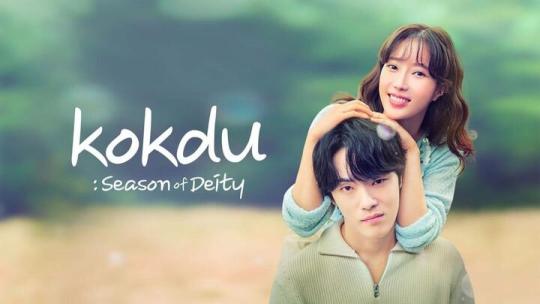
List by StayDandy
Synopsis : Oh Hyun once incurred the wrath of God. As punishment for his action he was turned into a grim reaper, Kokdu. As a reaper, every 99 years he possess a human body and visits the mortal world to punish humans. This time around he possess Dr. Do Jin Woo, which leads to him getting involved with Dr. Han Gye Jeol.
Han Gye Jeol works as a visiting physician. She is often looked down on for her degree from the country's lowest ranked medical school. When Do Jin Woo appears in front of her, he is the first one in her life who takes her side. But everything is set into a tailspin when Kokdu takes over, and her daily life is changed because of him. (MDL)
Whumpee : Kokdu / Oh Hyun / Do Jin Woo played by Kim Jung Hyun
• Han Chul played by Ahn Woo Yeon (bonus - 1 ep)
Country : 🇰🇷 South Korea
Genres : Comedy, Romance, Medical, Fantasy, Supernatural
Notes : This is a Full Whump List
• I tell ya, when he's in pain this boy is vocal! I was a bit disappointed when a "cure" is found (waaay too quickly imo) for most of the drama, which I get it, they need to progress the plot, but still - boo ... but it's not a permanent fix, so there's that to look forward to lol
Episodes on List : 13
Total Episodes : 16
*Spoilers below*
01 : [past life] Oh Hyun shot with an arrow, in a sword fight alone against a large group, cut several times, shot with more arrows, collapses, dies … [present] Do Jin Woo passes out drunk … punches a picture frame, knuckles bleeding … thrown off a building, lands on a car, rolls off, head bleeding, dies (now possessed by Kokdu)
02 : [past after-life] Oh Hyun holds his head in grief/pain, falls to his knees, passes out … [present] Kokdu's hearing voices, ears ringing, holds his head in pain … tired, stumbling a bit .. hearing voices, ears ringing, head pain
03 : [flashback to past life] Oh Hyun holding head & yelling in pain … [present] Kokdu's bones break (comedic) … sore … hearing voices, ears ringing, head pain … neck is cut (instantly heals - boo) … knees buckle
04 : Hearing voices, Ears ringing, head pain … drunk … hearing voices, ears ringing, head pain … collapses, exhausted, someone supporting him
05 : (at end) Chest pain, passes out
06 : … continued from previous ep. ... (replay) Chest pain, passes out, heart stops, chest compressions … passes out
07 : [flashback] Jin Woo is drugged, passes out … [present] wakes on the floor (instead of Kokdu) … hand cut
08 : Starts to fall asleep while driving … passes out while driving, crashes … wakes as Kokdu in the ambulance … (😂 omg using
Cha Do Hyun (Ji Sung) from Heal Me, Kill Me as an example of multiple personalities 😂)
12 : Han Chul (Han Gye Jeol's brother) is drugged, passes out … hospitalized … Kokdu is scratched by debris from an explosion, instantly heals
13 : … continued from previous ep. ... (replay) Scratched by debris from an explosion, instantly heals … stabbed (doesn't react/feel it), [quick flashback] Oh Hyun shot … [present] Kokdu has a headache … suddenly starts bleeding from where he was stabbed earlier, pain … bandaged … [flashback] Oh Hyun shot
14 : Kokdu has pain from the wound on his chest, starts bleeding again, bandaged … pain from the wound on his chest, bandaged again … stabbed in the same spot on his chest with a hair pin, bleeding heavily, passes out
15 : … continued from previous ep. ... (replay) Stabbed in the chest with a hair pin, bleeding heavily, passes out … on the bridge between life & death … taken by ambulance, hospitalized, ventilator … headache, ear ringing … migraine, chest pain, ear ringing … unsteady … hearing voices, ears ringing, head pain … migraine, ear ringing … hearing voices, ears ringing, head pain, hyperventilating, collapses.. weak, in bed, headache … unsteady, hearing voices, ears ringing, head pain
16 : Weak, sick, throws up
#whump#whump list#full whump list#Asian whump#South Korea#Kokdu Season of Deity#꼭두의 계절#Kokdu#Kkok Du#Oh Hyun#Do Jin Woo#Han Chul#Kim Jung Hyun#Ahn Woo Yeon#Comedy#Romance#Medical#Fantasy#Supernatural#drama#shot#fight#cut#character death#collapses#passes out#faints#drunk#bleeding#falls
43 notes
·
View notes
Text
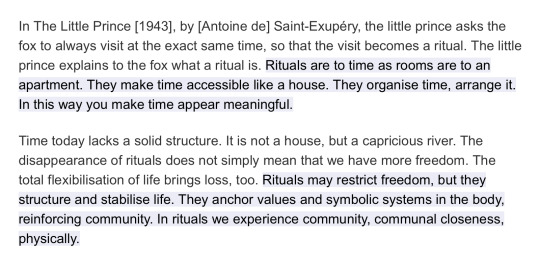
Byung-Chul Han, from an interview published in ArtReview
5K notes
·
View notes
Text

byung chul han, vita contemplativa
661 notes
·
View notes
Text
« Today, all time-consuming practices, such as trust, loyalty, commitment and responsibility, are disappearing. […] I think trust is a social practice, and today it is being replaced by transparency and information. Trust enables us to build positive relationships with others, despite lacking knowledge. In a transparency society, one immediately asks for information from others. Trust as a social practice becomes superfluous. The transparency and information society fosters a society of distrust. »
— Byung-Chul Han, “I Practise Philosophy as Art”
498 notes
·
View notes
Text
Solo Leveling characters singing "All I Want for Christmas is You"
Merry Christmas!
I'm not doing something this big again for a while-
Probably spent more time organizing the characters than making the video itself
Go Gunhee's watching the whole thing with his wife
#solo leveling#christmas#lee juhee#park heejin#park kyung hye#yoo soohyun#cha hae in#lim tae gyu#ma dongwook#sung il hwan#goto ryuji#sugimoto reiji#sung jin ah#han song yi#woo jin chul#sung jin woo#liu zhigang#lennart niermann#thomas andre#choi jongin#baek yoon ho#esil radiru#laura#jung yerim#draw swords#yoo jin ho#min byung gyu#han se mi#gina#lee bora
250 notes
·
View notes
Text
"Rituals are architectures of time, structuring and stabilising life, and they are on the wane. The pandemic has accelerated the disappearance of rituals. Work also has ritual aspects. We go to work at set times. Work takes place in a community. In the home office, the ritual of work is completely lost. The day loses its rhythm and structure. This somehow makes us tired and depressed.
In The Little Prince [1943], by [Antoine de] Saint-Exupéry, the little prince asks the fox to always visit at the exact same time, so that the visit becomes a ritual. The little prince explains to the fox what a ritual is. Rituals are to time as rooms are to an apartment. They make time accessible like a house. They organise time, arrange it. In this way you make time appear meaningful.
Time today lacks a solid structure. It is not a house, but a capricious river. The disappearance of rituals does not simply mean that we have more freedom. The total flexibilisation of life brings loss, too. Rituals may restrict freedom, but they structure and stabilise life. They anchor values and symbolic systems in the body, reinforcing community. In rituals we experience community, communal closeness, physically.
Digitalisation strips away the physicality of the world. Then comes the pandemic. It aggravates the loss of the physical experience of community. You’re asking: can’t we do this by ourselves? Today we reject all rituals as something external, formal and therefore inauthentic. Neoliberalism produces a culture of authenticity, which places the ego at its centre. The culture of authenticity develops a suspicion of ritualised forms of interaction. Only spontaneous emotions, subjective states, are authentic. Modelled behaviour, for example courtesy, is written off as inauthentic or superficial. The narcissistic cult of authenticity is partly responsible for the increasing brutality of society.
In my book I argue the case against the cult of authenticity, for an ethic of beautiful forms. Gestures of courtesy are not just superficial. The French philosopher Alain says that gestures of courtesy hold a great power on our thoughts. That if you mime kindness, goodwill and joy, and go through motions such as bowing, they help against foul moods as well as stomach ache. Often the external has a stronger hold than the internal.
Blaise Pascal once said that instead of despairing over a loss of faith, one should simply go to mass and join in rituals such as prayer and song, in other words mime, since it is precisely this that will bring back faith. The external transforms the internal, brings about new conditions. Therein lies the power of rituals. And our consciousness today is no longer rooted in objects. These external things can be very effective in stabilising consciousness. It is very difficult with information, since it is really volatile and holds a very narrow range of relevance."
- Byung-Chul Han being interviewed by Gesine Borcherdt, from "Byung-Chul Han: 'I Practise Philosophy as Art.'" Art Review, 2 December 2021.
#byung chul han#quote#quotations#ritual#ceremony#liturgy#time#community#philosophy#gesine borcherdt#faith#zen#christian theology#anthropology#consciousness#neoliberalism#capitalism
2K notes
·
View notes
Text
“The voracious consumption of images makes it impossible to close your eyes. The punctum presupposes an ascesis of seeing. Something musical is inherent in it. This music only sounds when you close your eyes, when you make "an effort at silence." Silence frees the image from the "usual blabla" of communication. Closing your eyes means "making the image speak in silence." This is how Barthes quotes Kafka: “We photograph things to drive them away from the spirit. My stories are a way of closing my eyes.. »”
― Byung-Chul Han, Saving Beauty
414 notes
·
View notes
Quote
In the course of general acceleration and hyperactivity we are also losing the capacity for rage. Rage has a characteristic temporality incompatible with generalized acceleration and hyperactivity, which admit no breadth of time. The future shortens into a protracted present. It lacks all negativity, which would permit one to look at the Other. In contrast, rage puts the present as a whole into question. It presupposes an interrupting pause in the present... The general distraction afflicting contemporary society does not allow the emphasis and energy of rage to arise. Rage is the capacity to interrupt a given state and make a new state begin. Today it is yielding more and more to offense or annoyance, "having a beef", which proves incapable of effecting decisive change.
Byung-chul Han, The Burnout Society
#emotions#feelings#rage#time#future#present#distraction#energy#interruption#change#quotes#Han#Byung-chul Han#The Burnout Society
209 notes
·
View notes
Text
Today’s society is no longer Foucault’s disciplinary world of hospitals, madhouses, prisons, barracks, and factories. It has long been replaced by another regime, namely a society of fitness studios, office towers, banks, airports, shopping malls, and genetic laboratories. The society of the 21st century is no longer disciplinary, but a society of the performance. Nor are its inhabitants called ‘subjects of obedience’, but ‘subjects of performance’. These subjects are entrepreneurs of themselves.
Excess work and performance escalate into auto-exploitation. This is much more effective than the exploitation by the others, because it is accompanied by a feeling of freedom. The exploiter is the same exploited. Victim and executioner can no longer differentiate. This self-referentiality generates a paradoxical freedom, which, because of the structures of obligation immanent to it, becomes violence […] In this society of obligation, each one carries with him his forced labor field.
What proves problematic is not individual competition per se, but rather its self-referentiality, which escalates into absolute competition. That is, the achievement-subject competes with itself; it succumbs to the destructive compulsion to outdo itself over and over, to jump over its own shadow. This self-constraint, which poses as freedom, has deadly results..
No-longer-being-able-to-be-able leads to destructive self-reproach and auto-aggression. The achievement-subject finds itself fighting with itself. The depressive has been wounded by internalized war. Depression is the sickness of a society that suffers from excessive positivity. It reflects a humanity waging war on itself.
Today, everyone is an auto-exploiting labourer in his or her own enterprise. People are now master and slave in one. Even class struggle has transformed into an inner struggle against oneself.
― Byung-Chul Han, extracts from The Burnout Society
#Byung-Chul Han#byung chul han#the burnout society#mass culture#culture industry#cultural criticism#philosophy#german philosophy#foucault
635 notes
·
View notes
Text

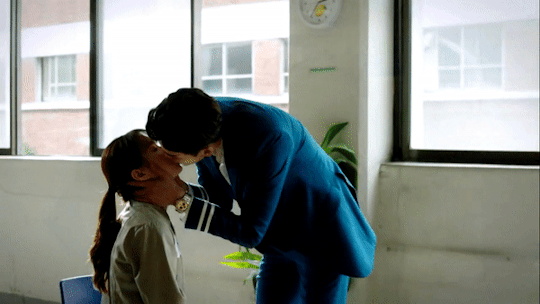
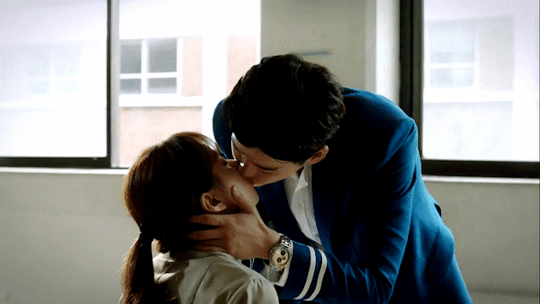

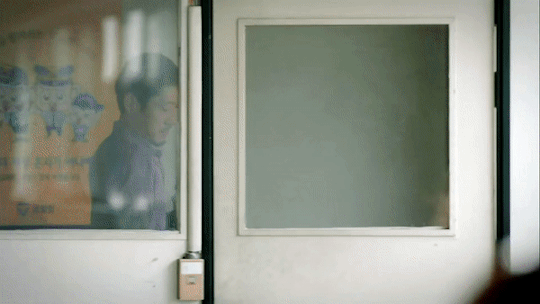
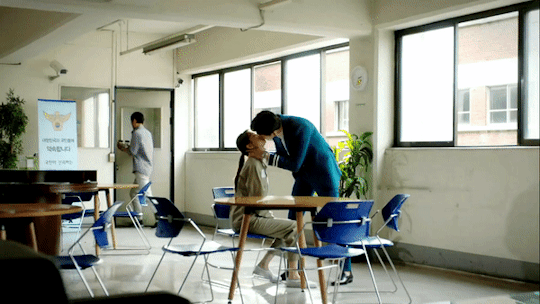
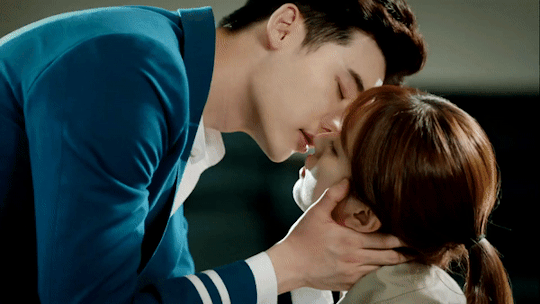
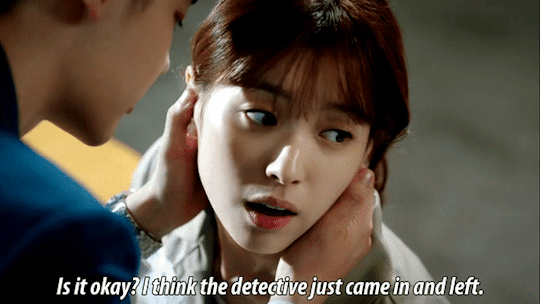
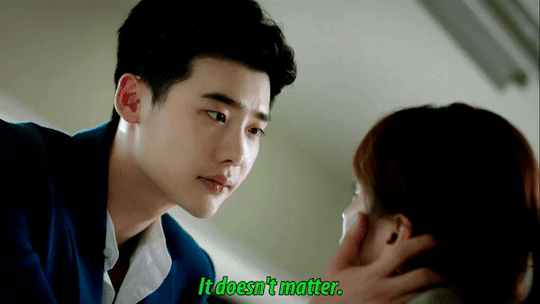
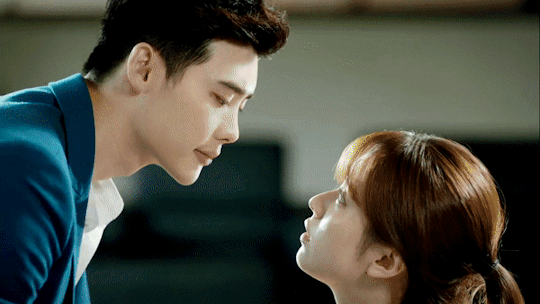
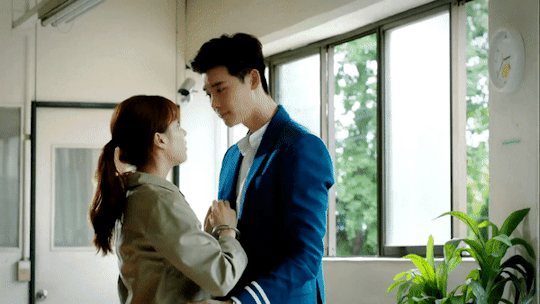


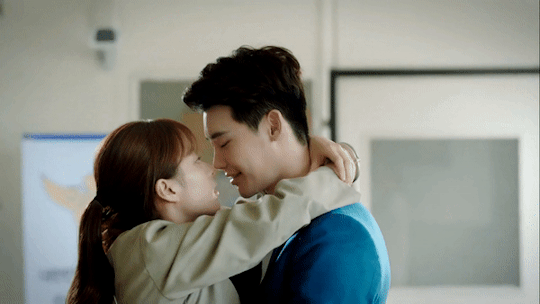
Ultimate Ships Challenge: [5/10] Kisses >> Oh Yeon Joo and Kang Chul's kiss in Episode 7
"I was afraid."
"Of what?"
"I was afraid that I might never see you again."

#w two worlds#oh yeon joo#kang chul#yeon joo x kang chul#lee jong suk#han hyo joo#wedit#kdramaedit#kdramadaily#kdramasource#romancegifs#otpsource#userjap#baek1nho#komunyoung#todramaism#usereda#userstream#cinemapix#usc
195 notes
·
View notes
Text
The economy of violence is ruled by a logic of accumulation. The more violence you exert, the more powerful you feel. Accumulated killing power [Tötungsgewalt] produces a feeling of growth, force, power [Macht] – of invulnerability and immortality. The narcissistic enjoyment human beings take in sadistic violence is based on just this increase in power. Killing protects against death. By killing, you arrest death. An increase in killing power means a reduction in death. The nuclear arms race also mirrors this capitalist economy of violence. Accumulating killing capacity is imagined as a way of accumulating a survival capacity.
Byung-Chul Han, Capitalism and the Death Drive
230 notes
·
View notes
Text
"The digital medium is defactifying the world. The digital medium knows nothing of age, destiny, or death. Time itself is frozen: it is a timeless medium. In contrast, the analog medium suffers from time. This aspect takes the form of passion. Discussing photography, Barthes writes:
Not only does it commonly have the fate of paper (perishable), but even if it is attached to more lasting supports, it is still mortal: like a living organism, it is born on the level of the sprouting silver grains, it flourishes a moment, then ages. … Attacked by light, by humidity, it fades, weakens, vanishes.
Barthes links photography to a form of life in which the negativity of time plays the constitutive role. In contrast, the digital image—the digital medium—represents the corollary of a mode of “life” in which growing and aging, birth and death, are all erased. Permanent presence and an enduring now [Gegenwart] are its hallmarks. The digital does not blossom or gleam: the negativity of wilting is inscribed in budding, just as the negativity of shadows lies within glancing light."
Byung-Chul Han, In the Swarm: Digital Prospects
159 notes
·
View notes
Text
For Barthes, veiling is an essential part of eroticism. The 'most erotic portion' of a body is 'where the garment gapes', that piece of skin which flashes 'between two articles of clothing...between two edges...'. What is erotic is the 'staging of an appearance-as-disappearing'. Tear, break and gap account for the erotic... The erotic can do without truth. It is semblance, a phenomenon pertaining to the veil.
Byung-Chul Han, Saving Beauty (trans. Daniel Steuer)
#byung-chul han#eroticism#beauty#saving beauty#philosophy#quote#roland barthes#the pleasure of the text
47 notes
·
View notes
Text
« Over three years I established a winter-flowering garden. I also wrote a book about it with the title Praise to the Earth [2018]. My understanding from being a gardener is: Earth is magic. Whoever claims otherwise is blind. Earth is not a resource, not a mere means to achieve human ends. Our relationship to nature today is not determined by astonished observation, but solely by instrumental action. […] It is not enough that we now have to be more careful with Earth as a resource. Rather, we need a completely different relationship with Earth. We should give it back its magic, its dignity. We should learn to marvel at it again. […] We should rediscover the capacity for inaction. »
— Byung-Chul Han, “I Practise Philosophy as Art”
350 notes
·
View notes
Text
Oggi corriamo dietro alle informazioni senz’approdare ad alcun sapere. Prendiamo nota di tutto senza imparare a conoscerlo. Viaggiamo ovunque senza fare vera esperienza. Comunichiamo ininterrottamente senza prendere parte a una comunità. Salviamo quantità immani di dati senza far risuonare i ricordi. Accumuliamo amici e follower senza mai incontrare l’Altro. Così le informazioni generano un modo di vivere privo di tenuta e di durata.
Byung-Chul Han, Le non cose. Come abbiamo smesso di vivere il reale
61 notes
·
View notes
Text
"I think trust is a social practice, and today it is being replaced by transparency and information. Trust enables us to build positive relationships with others, despite lacking knowledge. In a transparency society, one immediately asks for information from others. Trust as a social practice becomes superfluous. The transparency and information society fosters a society of distrust."
- Byung-Chul Han being interviewed by Gesine Borcherdt, from "Byung-Chul Han: 'I Practise Philosophy as Art.'" Art Review, 2 December 2021.
#byung chul han#quote#quotations#anthropology#trust#community#relationships#information#philosophy#knowledge#gesine borcherdt#social media
285 notes
·
View notes